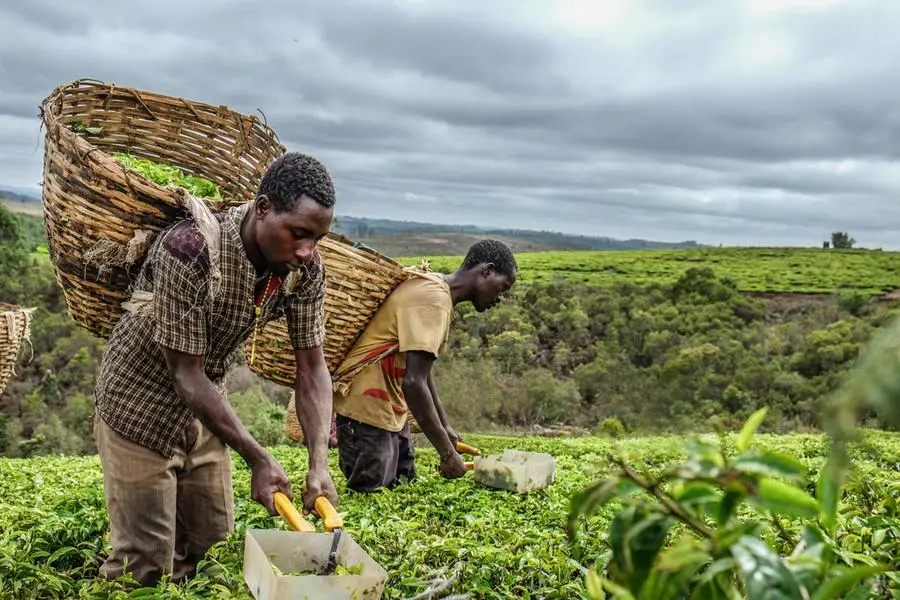PHOTO
A mismatch between tea price and quality is undermining sales in East Africa, with the market recording its lowest price per kilo in three years.
The Mombasa Tea Auction and the newly launched Dar es Salaam Auction continue to record low prices, influenced by factors such as global demand and seasonal changes.
However, the two markets have exceeded the international limit of 30 million kilos of unsold tea. Mombasa recorded more than 100 million kilos of unsold tea last year.
Tanzania's tea sector, through the Dar es Salaam Tea Auctions, has seen a decline in sales volumes and price volatility, with many lots remaining unsold by more than half.
Data from the auctions since November 13, 2023 shows a decrease in prices compared to the $0.77 per kilo offered for the 66,920 kg of tea, which remained a benchmark for price and sales volumes.
Subsequent auctions show a fluctuating trend with the volume sold dropping to 6,994 kg out of 47,066 kg offered in the middle of this year.
These fluctuations can be attributed to a number of factors including global market demand, local production changes and seasonal influences. The auction data now means that marketers should adopt strategies to adapt.
Kenyan authorities said they were working hard to further reduce sales and low prices. However, unsold tea has forced them to set a reserve price of $2.43 to clear the backlog of unsold tea, which in turn has led to high storage costs.
Traders said the surplus was due to the implementation of the reserve price policy and the cessation of direct exports by the Kenya Tea Development Agency (KTDA).
However, the low take-up of tea at the auction is also said to be due to the declining quality of tea in the country and dollar challenges in export markets.
Several tea storage warehouses in Kenya's coastal towns remain full of unsold tea, compounded by delays in ships coming to collect tea as a result of the ongoing attacks in the Gulf of Aden.
Read: Kenya loses $2m weekly as the tea sector crisis spiralsCompanies listed on the Nairobi Securities Exchange (NSE), Williamson Tea and Kapchorua Tea, have already called for the destruction of the huge stock of unsold tea held by KTDA to save the industry from being stifled by an oversupply of the commodity that will continue to depress prices.
The two tea companies, which share majority ownership, said tea prices had fallen to unsustainable levels as a result of market saturation.
In 2022, the Kenyan government set a minimum price of $2.43 per kilogramme on KTDA to protect the incomes of farmers, who account for about 60 percent of Kenya's tea production.
But last week, Kenya suspended the reserve price at the Mombasa tea auction to allow more than 70 million kilos of unsold tea to return to the market.
The more than 100 million kilos that were rolled over this year have been sitting in warehouses in Mombasa, with buyers failing to buy them because of the price mismatch with the quality of the tea.
If the tea is not sold before October, it means farmers will lose out on a huge bonus payment as cartels continue to ruin the tea sector.
Kenya's Cabinet Secretary for Agriculture and Livestock Development, Andrew Karanja, said a committee would be formed to look into the problems of the reserve price and quality of tea sold at the auction.
The CS accused some unnamed unscrupulous brokers in the tea industry of unethical trading practices and warned that their licences would be revoked.“The KTDA has in the last two weeks sold 30 million kilos of the previous stock balance and is currently holding only approximately 70 million kilos of teas from smallholder tea factories, which will be sold before the declaration of the second payment in October this year,” the CS said.
The government official argued that the unsold tea was within the 3-year shelf life, but said KTDA would sell the remaining stock of tea through private contracts before the declaration of the second payment to tea farmers in October this year.“The minimum reserve price for all teas above 6 months shall be suspended with immediate effect. The ministry will also appoint a multi-stakeholder committee to review the pricing mechanism of tea," said CS Karanja.
The Mombasa auction operates on a two-day-a-week format, with secondary grade teas sold on Mondays and premium grade teas on Tuesdays. Any tea not sold on a scheduled auction day is reprinted on a new catalogue and returned to the auction two weeks later.
A seller can only bring unsold crops back to auction twice. Any crop that remains unsold after two auction attempts is relegated to a sales window known as the 'passive window', where produce is sold at low prices due to perceived poor quality.
Data shows that over the past five years, Kenya has exported less than 1 percent of its total production in value-added form.
Kenya produces about 200 million kilos of fresh tea annually. © Copyright 2022 Nation Media Group. All Rights Reserved. Provided by SyndiGate Media Inc. (Syndigate.info).





















